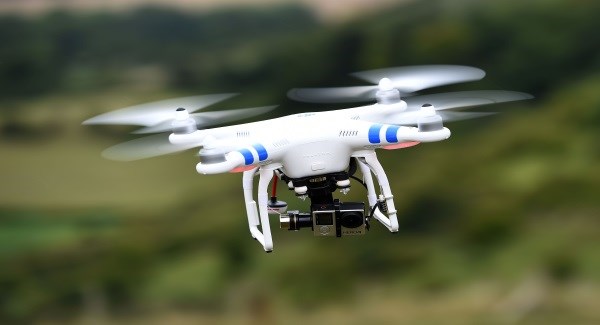The Government of Rwanda is finalizing plans to adopt the use of unmanned aerial vehicles (UAVs), popularly known as drones, in the fight against malaria.
Under the arrangement, a drone will be fitted with a 10-liter tank that can carry insecticide, follow pre-mapped routes and spray areas that are breeding grounds for mosquitoes, reports state-owned newspaper The New Times.
Dr Aimable Mbituyumuremyi, the Division Manager for malaria and other parasitic diseases at Rwanda Biomedical Centre (RBC), is quoted by the newspaper as saying that they are finalizing the partnership with Charis Unmanned Aerial Solutions, a local drone technology company, with hope that the drone technology will bring more benefits in the fight against malaria.
“We are negotiating to see how this technology can help us in malaria control because the same technology has been used in other countries to control mosquitoes,” Dr. Mbituyumuremyi is quoted as saying.
He said drone technology would help them to reach certain areas where conventional pump sprayers could not reach, including in marshlands, rice paddies, and other fields.
Mr. Eric Rutayisire Muziga, the Chief Executive Officer at Charis Unmanned Aerial Solutions, says the drones have the capacity to fly for about 15 minutes on a single battery and ability to spray an area of 40 hectares in a day.
Such drones make sense where they replace labour-intensive and use of back-pack sprayers, which are deemed to be inefficient.
“While this has been used elsewhere, we believe this is an innovation in Rwanda because we are going to do things differently,” Muziga is quoted as saying by The New Times.
Must read: Kagame: How I’m making Rwanda an innovation powerhouse
Mbituyumuremyi said using drone technology to spray habitats of mosquito larvae could kill them before they grow to enter into households.
The exercise would take place across the country, but with options of prioritising high endemic zones for malaria, especially in Eastern and Southern provinces.
“We want to start this technology with a few districts but the overall goal is to have all targeted districts sprayed using drones as a new technology,” he said, highlighting that they are still in negotiations to figure out what would be the cost of adopting this technology in the long term.
Information from the Ministry of Health indicates that, since the end of 2012, Rwanda has experienced an increase in malaria morbidity, and generally, approximately 90 per cent of Rwandans are at risk of malaria.
Simple malaria cases increased from about a million in 2012 to 4.5 million in 2016 rise while severe malaria cases increased from 9,000 to 17,000 during the same period.
Preliminary data from RBC shows that total malaria cases dropped to below 4 million by end 2018.
Related:
US firm Zipline to open drone assembly plant in Rwanda
Lack of laws, safety concerns hindering take off of drone use in Africa

